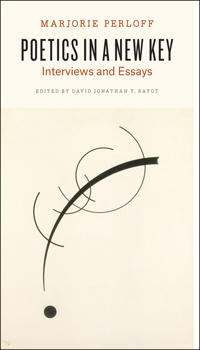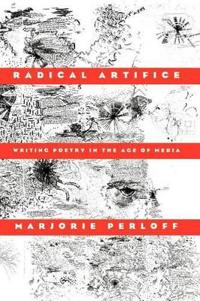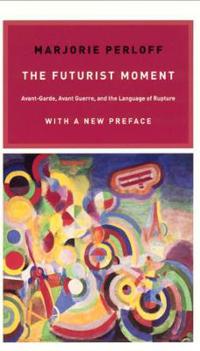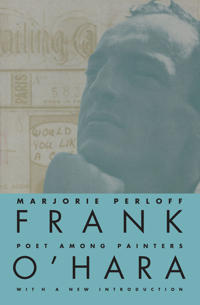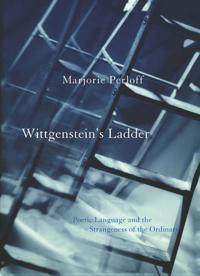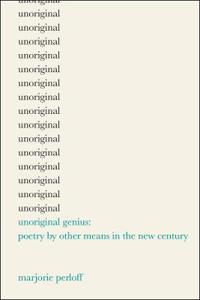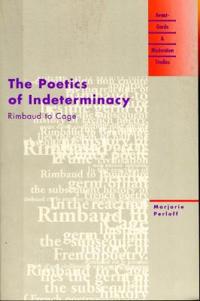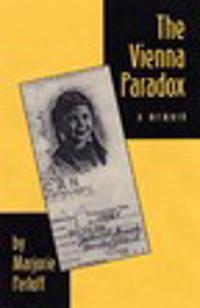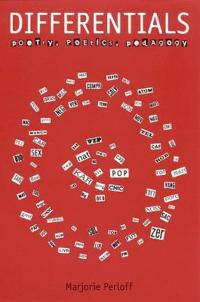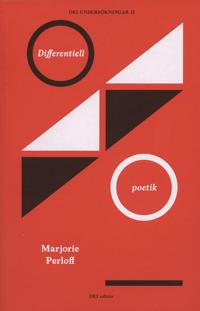Poetics in a New Key (Pocket)
avMarjorie Perloff
ISBN: 9780226199412 - UTGIVEN: 2014-10Marjorie Perloff writes in her preface to Poetics in a New Key that when she learned David Jonathan Y. Bayot wanted to publish a collection of her interviews and essays, she was "at once honored and mystified." But to Perloff's surprise and her readers' delight, the resulting assembly not only prese[...]
Radical Artifice (Pocket)
avMarjorie Perloff
ISBN: 9780226657349 - UTGIVEN: 199405This text considers what happens when the "natural speech" model inherited from the Modernist poets comes up against the "natural speech" of the "Donahue" talk show, or again, how visual poetics and verse forms are responding to the languages of billboards and sound bytes. Among the many poets whose[...]
The Futurist Moment (Pocket)
avMarjorie Perloff
ISBN: 9780226657387 - UTGIVEN: 200312Marjorie Perloff's stunning book was one of the first to offer a serious and far-reaching examination of the momentous flourishing of Futurist aesthetics in the European art and literature of the early twentieth century. Offering penetrating considerations of the prose, visual art, poetry, and caref[...]
Frank O'Hara (Pocket)
avMarjorie Perloff
ISBN: 9780226660592 - UTGIVEN: 199803Drawing extensively upon the poet's unpublished manuscripts - poems, journals, essays, and letters - as well as all his published works, Marjorie Perloff presents Frank O'Hara as one of the central poets of the postwar period and an important critic of the visual arts. Perloff traces the poet's deve[...]
Wittgenstein's Ladder (Häftad)
avMarjorie Perloff
ISBN: 9780226660608 - UTGIVEN: 199904Marjorie Perloff, among our foremost critics of twentieth-century poetry, argues that Ludwig Wittgenstein provided writers with a radical new aesthetic, a key to recognizing the inescapable strangeness of ordinary language. Taking seriously Wittgenstein's remark that "philosophy ought really to be w[...]
Unoriginal Genius (Pocket)
avMarjorie Perloff
ISBN: 9780226660622 - UTGIVEN: 201203In "Unoriginal Genius" Marjorie Perloff explores a new development in contemporary poetry: the repurposing of other people's words in order to make new works, by framing, citing, and recycling already existing phrases, sentences, and even full texts. Paradoxically, she argues, this 'unoriginal' poet[...]
The Poetics of Indeterminacy (Häftad)
avMarjorie Perloff
ISBN: 9780810117648 - UTGIVEN: 200002Seductively and persuasively argued.
Differentials (Häftad)
avMarjorie Perloff
ISBN: 9780817351281 - UTGIVEN: 2004-08Marjorie Perloff is one of the foremost critics of contemporary American poetry writing today. Regarded as highly accessible, her works are credited by many with creating and sustaining new critical interest not only in the work of major modernist poets such as Yeats, Pound, Eliot, and Williams but [...]
Differentiell poetik (Inbunden)
avMarjorie Perloff
ISBN: 9789185905508 - UTGIVEN: 201302"Nu när det långa 1900-talet är bakom oss och många av våra heliga texter har blivit möjliga att omvärdera, samtidigt som nya texter fyller fältet, är det lägligt att rikta uppmärksamhet mot det som Marcel Duchamp kallade det infratunna." Så beskriver Marjorie Perloff impulsen till vad h[...]

